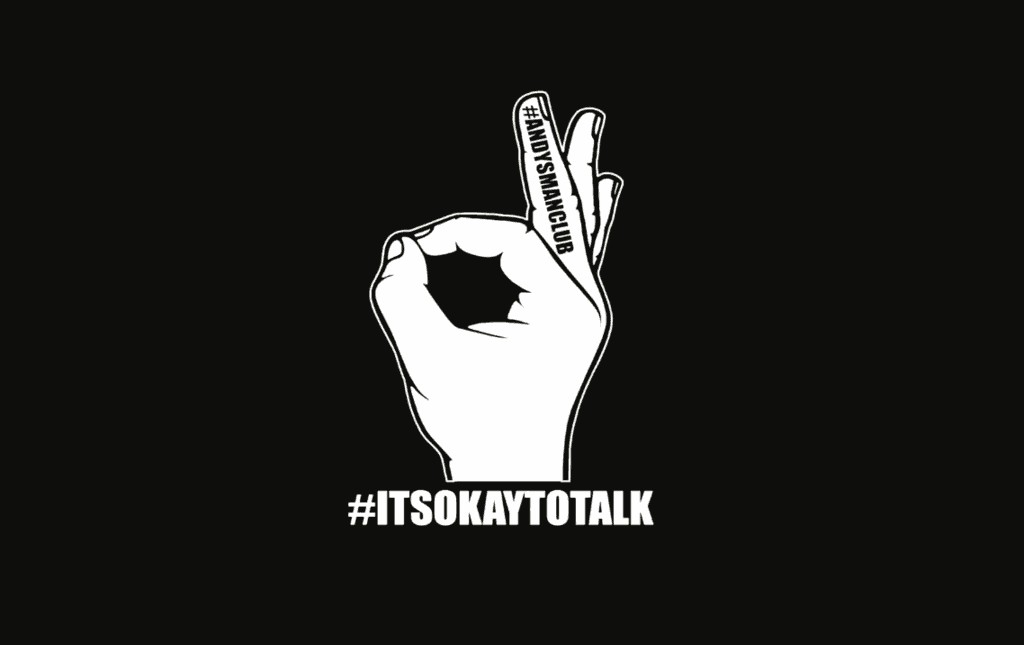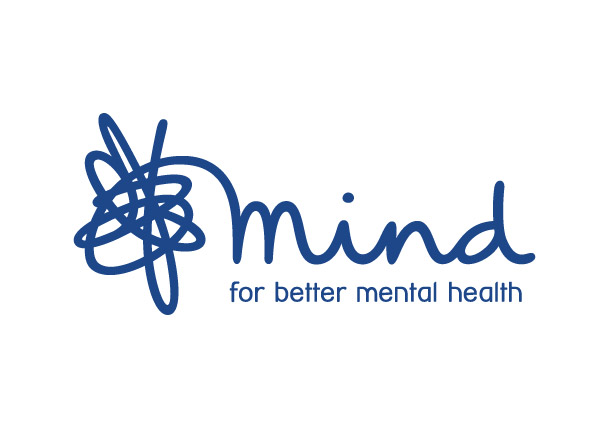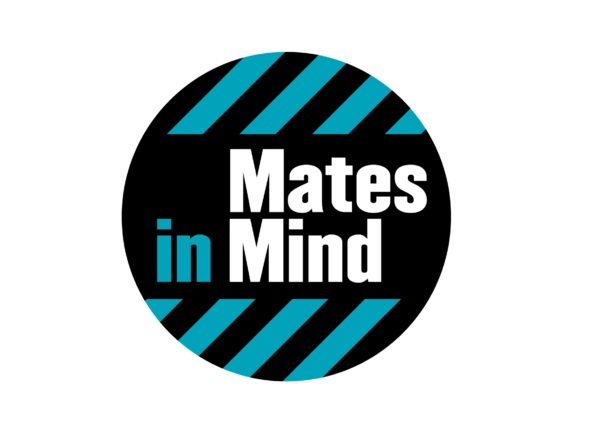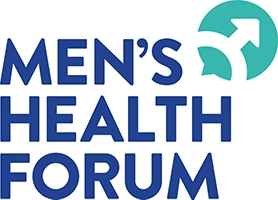Supporting men’s mental health: Top charities to turn to in the UK
11 min read
Emily Ledger
It’s Men’s Health Week - an annual week-long event that aims to raise awareness about the health challenges faced by men. As organisations from across the country come together to provide relevant information and improve access to vital health services for boys and men in the UK, we’re taking a closer look at the role of mental health charities in providing these services and improving men’s mental health.
Contents
In recent years, awareness of men’s mental health has improved, with mental health charities at the forefront. But there is still a long way to go. Men’s Health Week brings an opportunity to reflect on the progress made in recent years, place a spotlight on the key services available to men and boys across the country, and acknowledge the stigma and barriers that remain.
In honour of Men’s Health Week, we will be discussing some of the most prominent mental health issues faced by men in the UK. We’ll highlight some key statistics and recent findings, and provide detailed information about some of the top charities dedicated to ending the stigma around men’s mental health and providing the support and resources needed to close the mental health gender gap.
What is Men’s Health Week?
Men’s Health Week was launched by the Men’s Health Forum to encourage men to share their health stories and raise awareness of health issues that are unique to and more acutely experienced by men. During this week-long event, charities, organisations, and businesses come together to encourage men to seek help or address any concerns they have regarding their health.
Men’s Mental Health - Some Key Statistics
In 2009, mental health charity, Mind, published ‘Get It Off Your Chest’, a report which drew on YouGov polling data and focus group findings to better understand the mental health challenges faced by men in the UK. Ten years later, in 2019, Mind recommissioned YouGov to repeat the survey and drew on findings from further focus groups around the country. The findings published in ‘Get It Off Your Chest - Men’s mental health 10 years on’, include:
- In 2019, two in five men said they regularly feel worried or low - an increase from 37% in 2009.
- The number of men who have suicidal thoughts when feeling worried or low doubled between 2009 and 2019.
- In 2019, men were three times more likely to see a therapist when feeling low or worried than in 2009, with face-to-face therapy and physical activity being preferred to prescription medication.
- Men are more likely to seek support if it was available online, if they were guaranteed anonymity, or if help was available at more convenient times of the day.
Some of the key findings of Mind’s 2019 report highlight the progress that has been made in recent years; however, it also acts as a reminder of how far we still have to go.
Prominent Men’s Mental Health Issues
Data collected in collaboration with the NHS Digital suggests that over a third of men believe they have had a diagnosable mental health problem at some time in their life. While several sources have found that reported levels of common mental health problems, such as anxiety and depression are lower in men (13.2% compared to 20.7% in women), it is widely believed that this is a considerable underestimation.
In 2022, a study conducted by Mates in Mind and The Institute for Employment Services (IES) found that a third of construction workers (an overwhelmingly male-dominant industry) live and work with severe levels of anxiety - a stark reminder of why mental health support in the workplace, as well as in healthcare, is so important.
Lower rates of help-seeking behaviour, including visiting GPs, talking to family and friends, and seeing a therapist, may mean that symptoms of poor mental health go unrecognised, unaddressed, and untreated. Getting help doesn’t have to mean prescription medications. Your doctor may recommend alternative treatments, from talking therapy and counselling to exercise and community activities.
The Charities Providing Support During Men’s Health Week and Beyond
There are many mental health charities in the UK that do excellent work to raise awareness and provide much-needed resources and support to those in need. A number of men’s mental health charities have been set up in response to a growing mental health crisis among men and boys in the UK. So, let’s take a look at some of these charities and the amazing work they do.

Andy’s Man Club
ANDYSMANCLUB are a men’s suicide prevention charity established in 2016 in honour of Andrew Roberts by his mother and brother-in-law. Their aim is to provide safe, judgement-free spaces where men can talk openly about their mental health in a non-clinical environment.
Starting out in a small room in Yorkshire with nine attendees, ANDYSMANCLUB now has groups at over 150 locations across the UK. ANDYSMANCLUB’s team also deliver in-person and online talks and awareness sessions to businesses, charities, and other organisations nationwide.
Today, their services are used by over 3,000 men across England, Scotland, and Wales. Weekly group meetings are held every monday night at 7pm. No referral or registration is required and no charge applies.
Contact ANDYSMANCLUB
Email: info@andysmanclub.co.uk
Book a free session for your organisation or business
Find your nearest ANDYSMANCLUB meeting
The UK Men’s Sheds Association (UKMSA)
The ‘Men’s Shed’ concept originated in Australia in 1999 before spreading to other parts of the world, including New Zealand, Canada, the UK and other parts of Europe. ‘Sheds’ refer to grassroots community activities that develop in response to shared need, whether it be to access tools, skills and opportunities to “make and mend in the company of others”.
Men’s Sheds encourages men to build meaningful connections with like-minded people to tackle loneliness and isolation - key factors in depression. Research indicates that there is an 89% decrease in depression and a 96% reduction in loneliness after joining a shed.
Not only do sheds allow men to deal with physical and mental health challenges, they also often contribute to community endeavours such as maintaining public parks and gardens, or restoring community buildings. There are now around 2,000 ‘sheds’, worldwide. The UKMSA offers support, guidance, and resources for starting and maintaining sheds in your local area.
Contact The UK Men’s Sheds Association
Phone: 0300 772 9626
Email: admin@ukmsa.org.uk
More information on starting your own shed, here
Join a shed: Find a shed near you, here
CALM
CALM (Campaign Against Living Miserably) was established in 1997 when its suicide prevention helpline was launched as part of an NHS Pilot. Becoming a national charity in 2006, CALM’s primary aim was “to reach young men struggling with their mental wellbeing, offering support and helping people find a reason to stay.”
Since then, CALM has established hubs across the UK and expanded its services and support resources to support anyone who is struggling. CALM’s helpline now takes 28,000 calls every month and their campaigns reach millions of people across the UK.
Contact CALM
Call their helpline on 0800 58 58 58 (open every day, 5 pm til midnight)
Access Guides and Tools here

Mind - England and Wales
For over 60 years, Mind has been working to improve the lives and mental health of all people across England and Wales. As we have already touched on, Mind conducts regular research to gain valuable insights into the most prominent mental health issues facing us today. Using these insights - such as those gained through their ‘Get It Off Your Chest’ reports - Mind aims to stand up to injustices and inequalities in healthcare, in the workplace, and in the law.
With local support communities across England and Wales, Mind offers a range of online and in-person services to all those in need of a helping hand, including:
- Supported housing
- Crisis helplines
- Drop-in centres
- Employment schemes
- Counselling
In 2011, Mind and Men’s Health Forum launched the first men’s mental health guidelines for health and care services in England. The charity has consistently aimed to raise awareness around the mental health problems faced by men and campaign for effective solutions. Their 2019 report concluded with several recommendations for the UK government, employers, and health services.
Contact Mind
Call Mind’s Infoline on 0300 123 3393
Email: info@mind.org.uk
Visit Mind’s Contact page for a list of further resources

Mates in Mind
With a focus on the construction industry, Mates in Mind aims to raise awareness and address the stigma around poor mental health in the workplace. The UK-based charity aims to “provide clear information to employers about the available support and guidance on mental health and wellbeing, and how they can address this within their organisations.”
While Mates in Mind isn’t a specifically male-focused charity, it focuses on raising awareness in traditionally male-dominated industries, such as construction, transport, and manufacturing.
As part of Mates in Mind’s Men’s Health Week activities, the charity will be running a free webinar - ‘How to create positive mental health in and around work’ - from 2 pm on Wednesday 12th June. Book your spot, here.
Contact Mates in Mind
Call Mates in Mind on 020 3510 5018
For urgent text support, text “BeAMate” to 85258
For more information on Mental Health and Wellbeing training

Men’s Health Forum
Of course, we can’t talk about men’s mental health charities without mentioning the organiser of Men’s Health Week - the Men’s Health Forum.
Founded in 1994, the Men’s Health Forum (MHF) has been at the forefront of raising awareness of the health issues faced by men and boys for three decades. Becoming an independent charity in 2001, MHF has published annual reports on men’s health, distributed more than 1 million ‘Man Manuals’, and helped millions of individuals in the UK.
MHF’s work on men’s mental health forms part of their wider dedication to tackle the high rate of premature deaths in men. To achieve this, they work with a wide range of partners, including government departments, healthcare providers, and other charities, to deliver essential resources and support.
Contact Men’s Health Forum
For more information about MHF’s services and partners, click here
Visit their online shop to order mental health resources
Final Thoughts
Men’s mental health is a crisis that requires urgent attention and action. With suicide the leading cause of death among men under 50, raising awareness and making resources and care more accessible is vital in this mission. Above are six UK-based charities that are dedicated to doing just that.
This Men’s Health Week (and beyond), remember to check in on those close to you, whether they are friends, family, or colleagues. If you’re struggling or feeling low, it’s important to reach out, either to a loved one, a healthcare professional, or a charity such as those mentioned in this article.
Share article
Did you like this article?
It is important to seek medical advice before starting any new treatments. The patient advisors at Releaf are available to provide expert advice and support. Alternatively, click here to book a consultation with one of our specialist doctors.
Elevate your wellness with medical cannabis
Get comprehensive care, convenience, and confidence with an all-in-one treatment plan.
Am I eligible?Authors
Emily, an accomplished content writer with a specialisation in cannabis and alternative health, leverages her five years in the sector to enhance education and diminish stigma around medicinal cannabis use.
Editorial Policy
All of our articles are written by medical cannabis experts, guided by strict sourcing guidelines, and reference peer-reviewed studies and credible academic research. Our expert clinical team and compliance specialists provide valuable insights to ensure accuracy when required. Learn more in our editorial policy.
Need more help?










